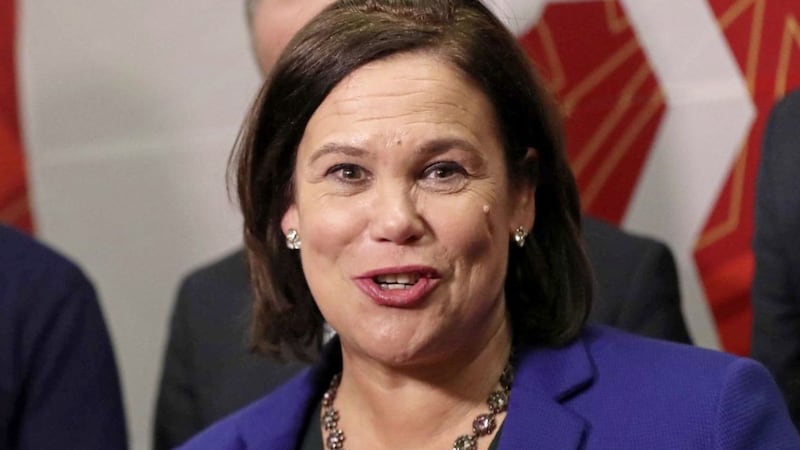Do you remember how Sinn Féin failed to understand that the pro-Brexit vote in Britain was the result of a large section of the electorate feeling alienated from those in power?
It was a political trend called populism, which is a protest vote against the political establishment.
Guess what? SF enjoyed a stunning electoral success on that same populist basis last week. Populism is not an ideology. It is an electoral strategy, which argues that those in power do not rule for the common good and that "the people" are the true soul of the nation.
It explains Brexit, Trump in America, the French National Front, Syriza in Greece, The Five Star Movement in Italy and Podemos in Spain.
Interestingly, populist movements rarely improve the daily lives of those who vote for them. So they tend to be an electoral safety valve, which allows their supporters to believe that electoral change will alter the balance of wealth and power.
You may claim that SF is different and that Ireland will soon be a land of social and economic equality. In fairness, there is one difference. Elsewhere, populist movements have been consciously created and engineered. But SF did not create Ireland's populist movement. They were standing in the right place at the right time when they were as much swept up by it, as in charge of it.
One SF candidate put up only 20 posters in her constituency. Another abandoned canvassing to go on holiday. Both were elected. The party's success was based less on what it did and more on what those in government failed to do.
So what will SF's populism do for the Irish working class? The answer is probably very little. Political change does not guarantee socio-economic progress, as evidenced by SF's record in Stormont and the history of a previous Irish populist party.
Sinn Féin has been in power in Belfast for the past thirteen years (three of them sitting at home) and their achievements on social and economic policy differ little from Fine Gael's.
You could argue that we cannot directly compare the Dáil with Stormont, but child poverty, homelessness, a lack of social housing, deprivation and hospital waiting lists all became worse under SF/DUP rule.
SF's defence that they do not have enough British money is unconvincing, since they agreed to another deal a few weeks ago, without waiting for additional cash.
SF now presents itself as left wing in the south. Some might wonder if a single party promoting sectarian politics in one jurisdiction can be considered left wing in another. (Will they continue to oversee the decline of the health service here while boosting it in the south, so that a united Ireland will be a cure for all our ills?)
While SF does have a few TDs who are socialist by inclination, the party is opportunist rather than leftist. (Although claiming to be left-wing, SF never describes itself as socialist. That would restrict its political wriggle room and offend its US financial backers.) Indeed it is tempting to view SF as the new Fianna Fáil, which initially came to power on a similar populist wave.
Having abandoned violence for constitutional nationalism, the newly formed FF won 44 Dáil seats in 1927. Using a platform of anti-British rhetoric, a pledge to end partition and a new deal for workers and farmers (sound familiar?), FF were swept into office with 79 seats in 1932. They held power for 61 of the next 79 years. (On that basis SF would be as well to wait until the next election to enter government.)
Fianna Fail's great strength was its ability to be perceived as non-ideological. (It is a centre-right party.) It too sees itself as republican and since republicanism is mystically portrayed as being above normal left-right politics, it is the ideal vehicle for populism.
De Valera spotted that opportunity almost 100 years ago. SF are now in a similar position. We can only wait and see how they will differ from Fianna Fáil (and Stormont) when in government in Dublin.









